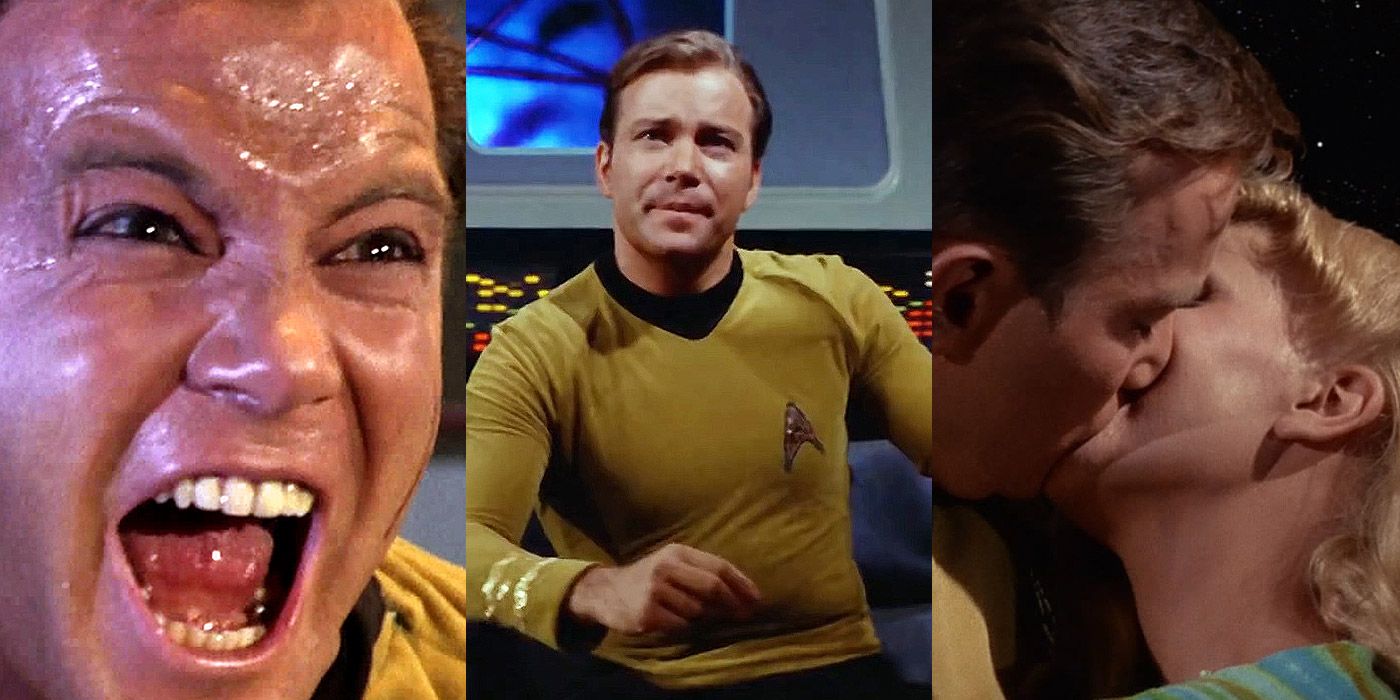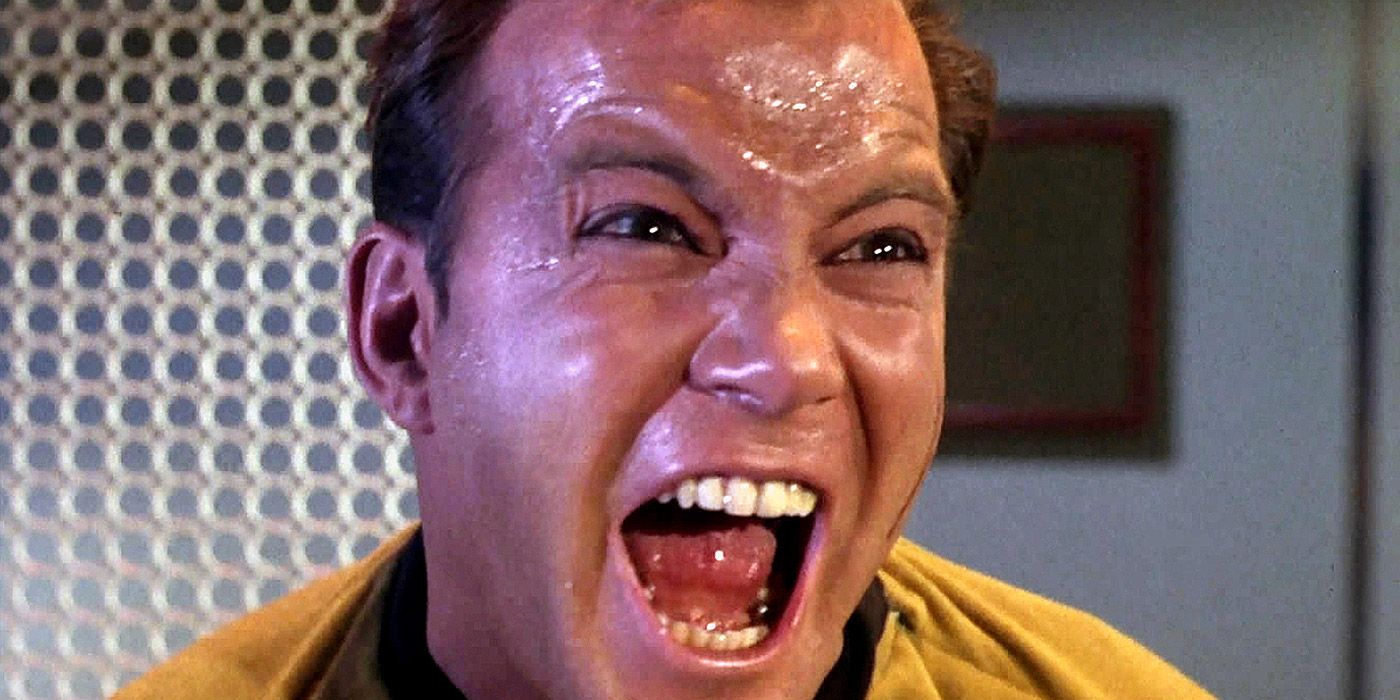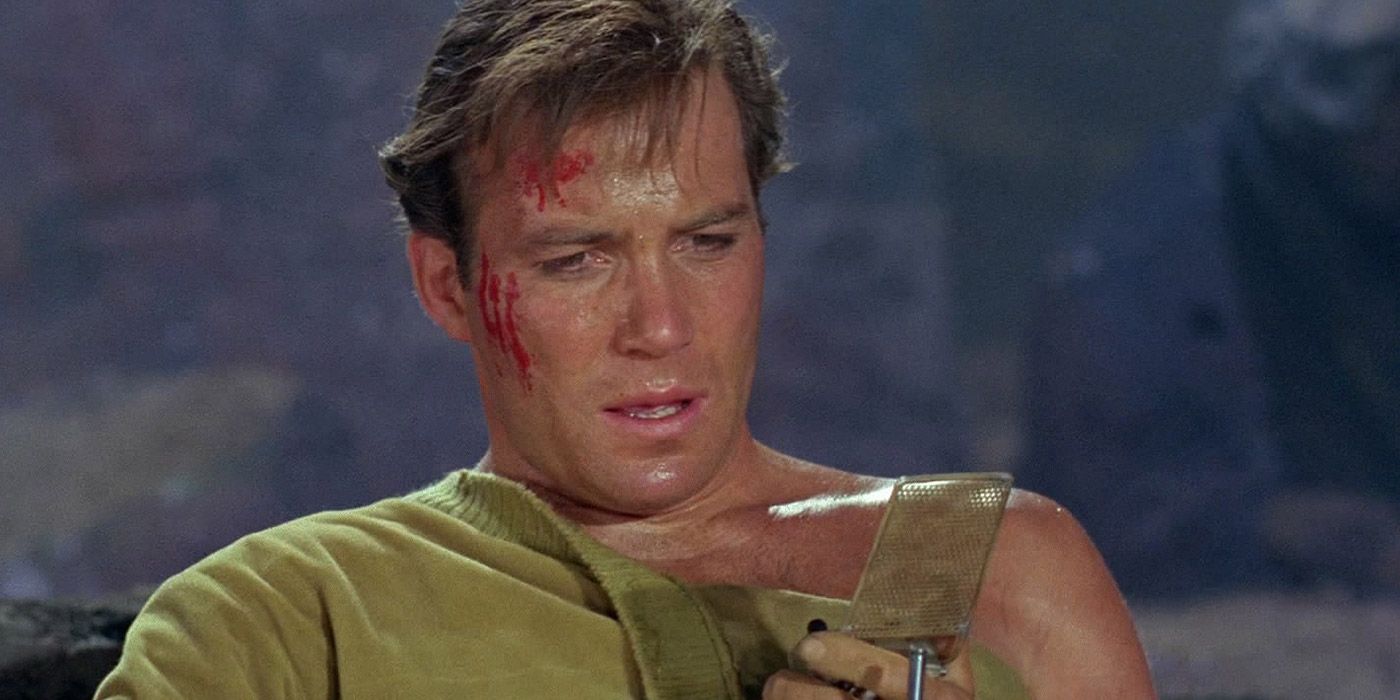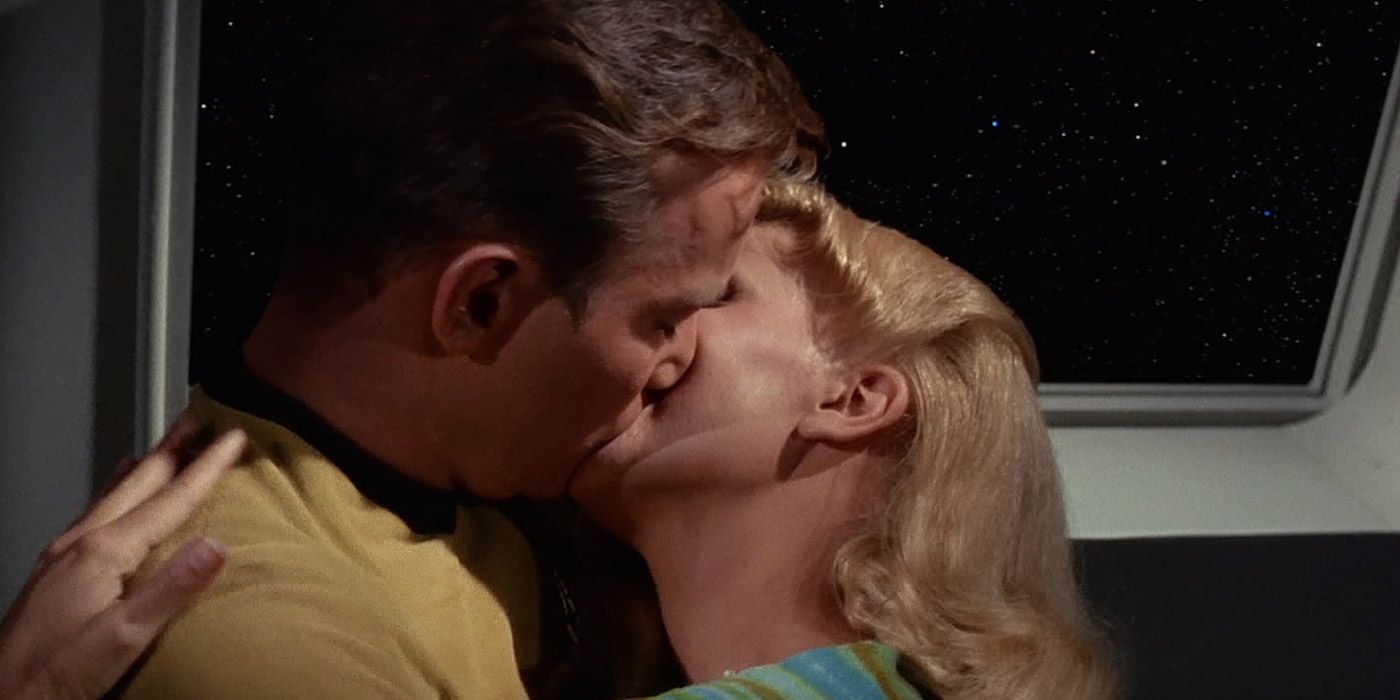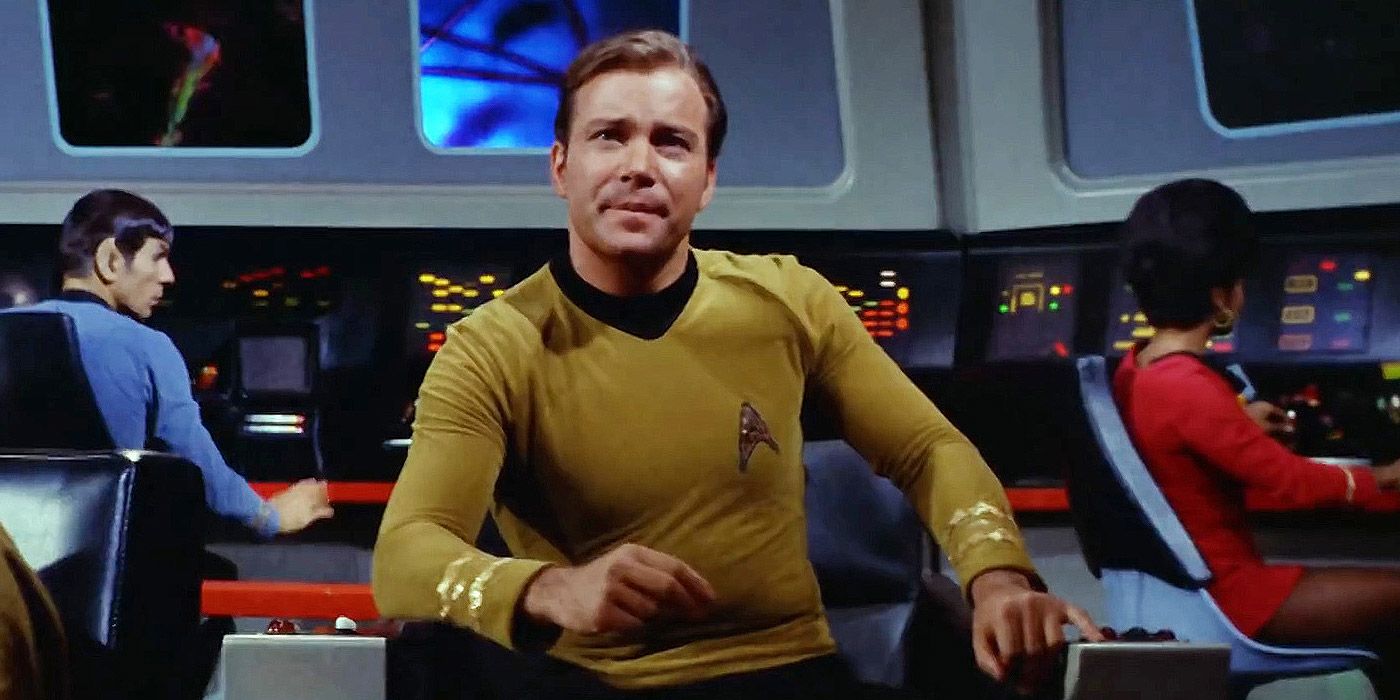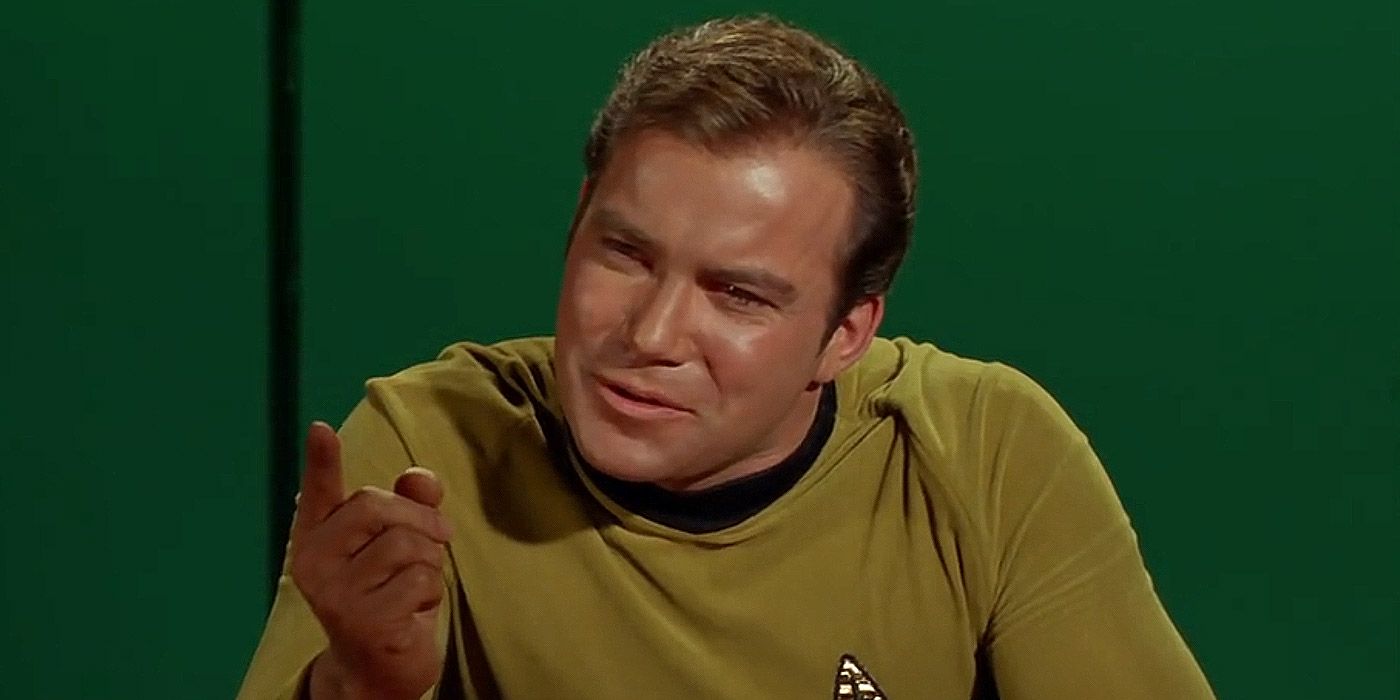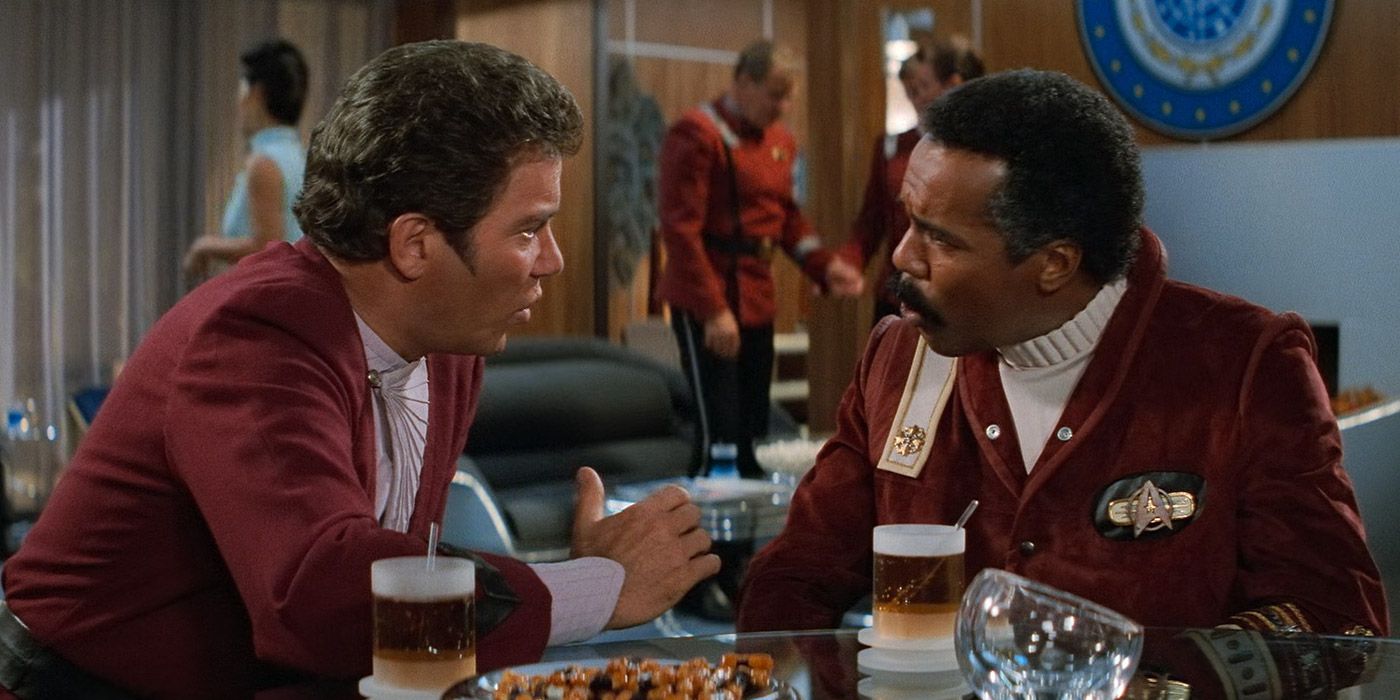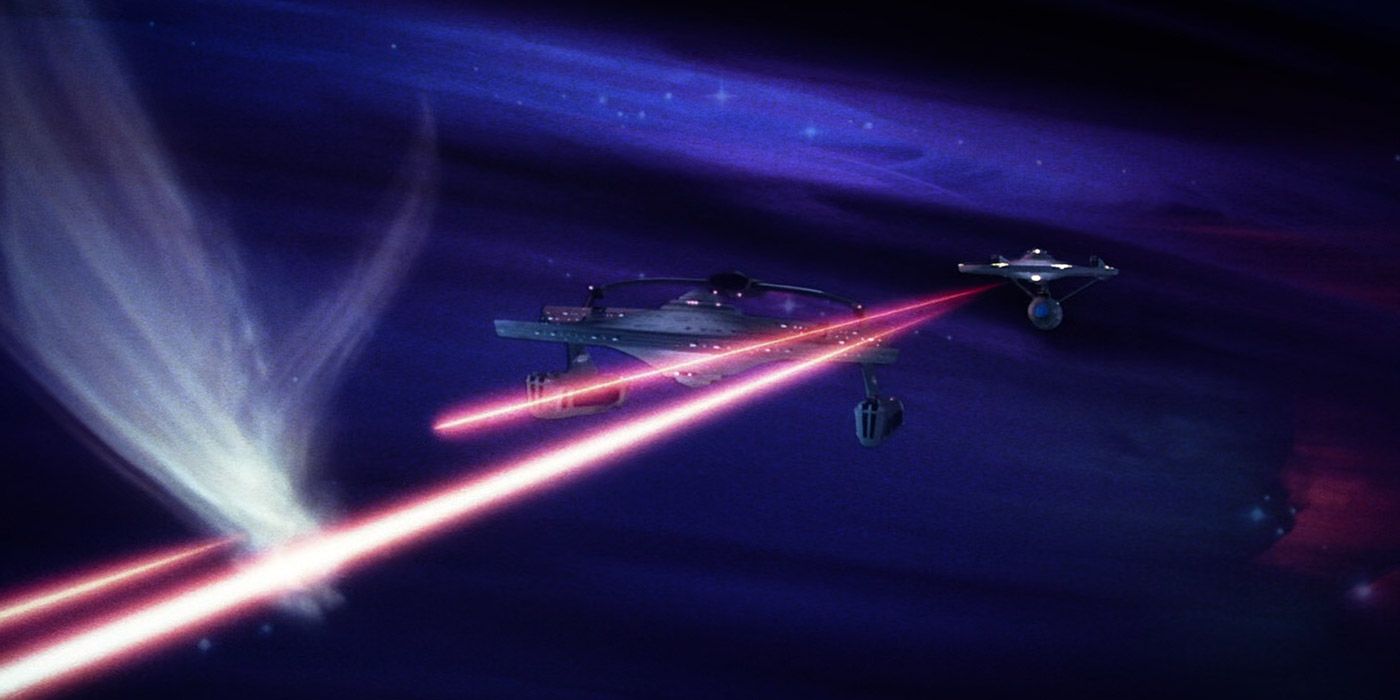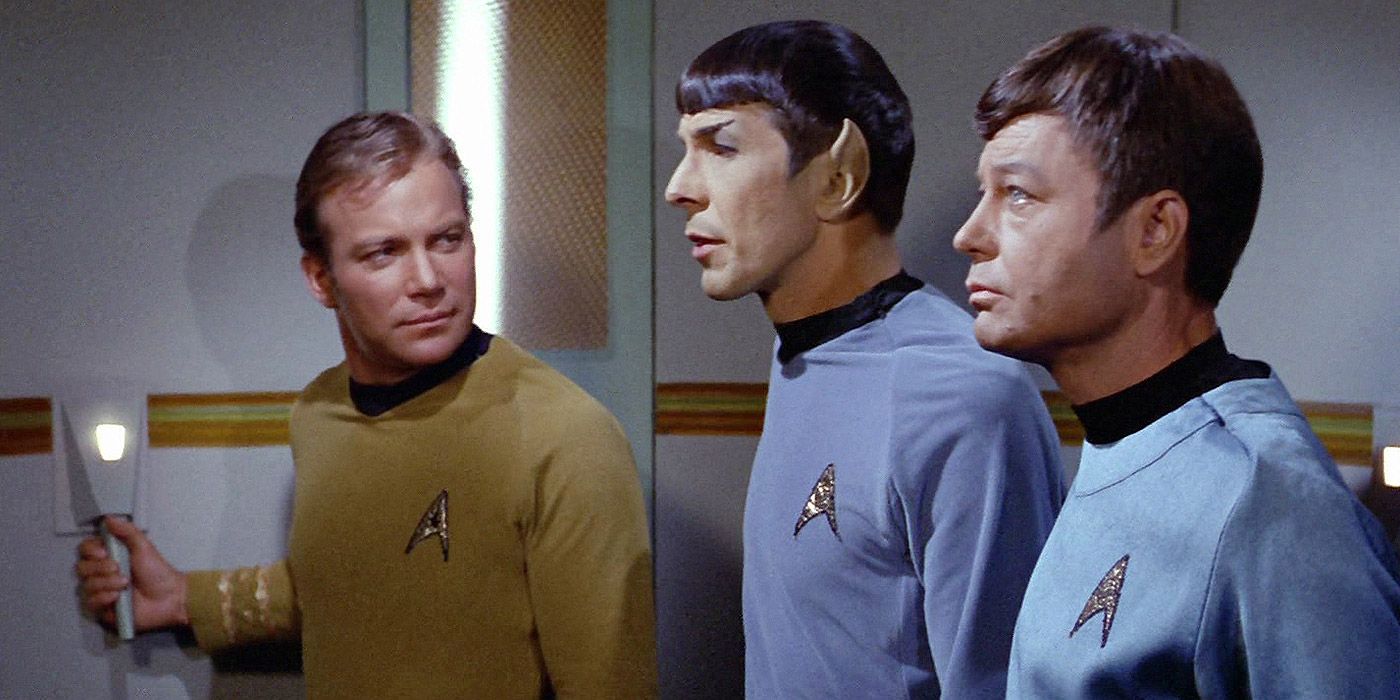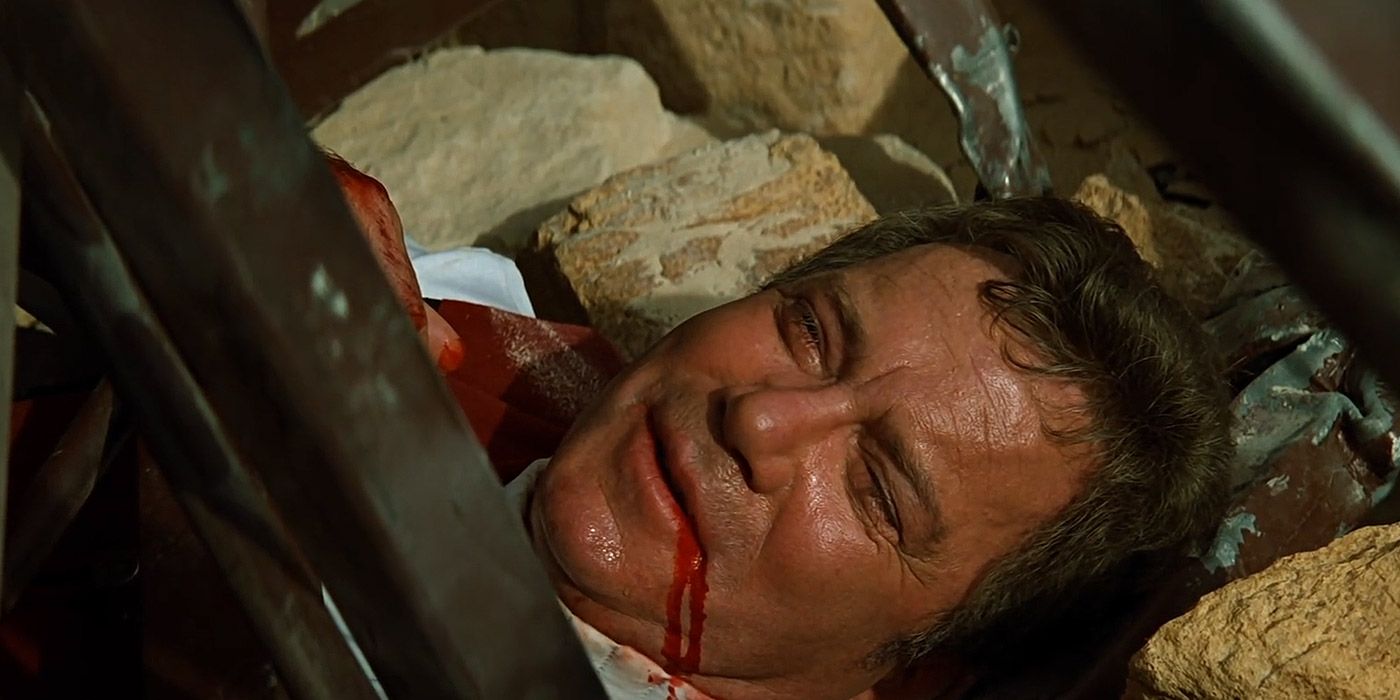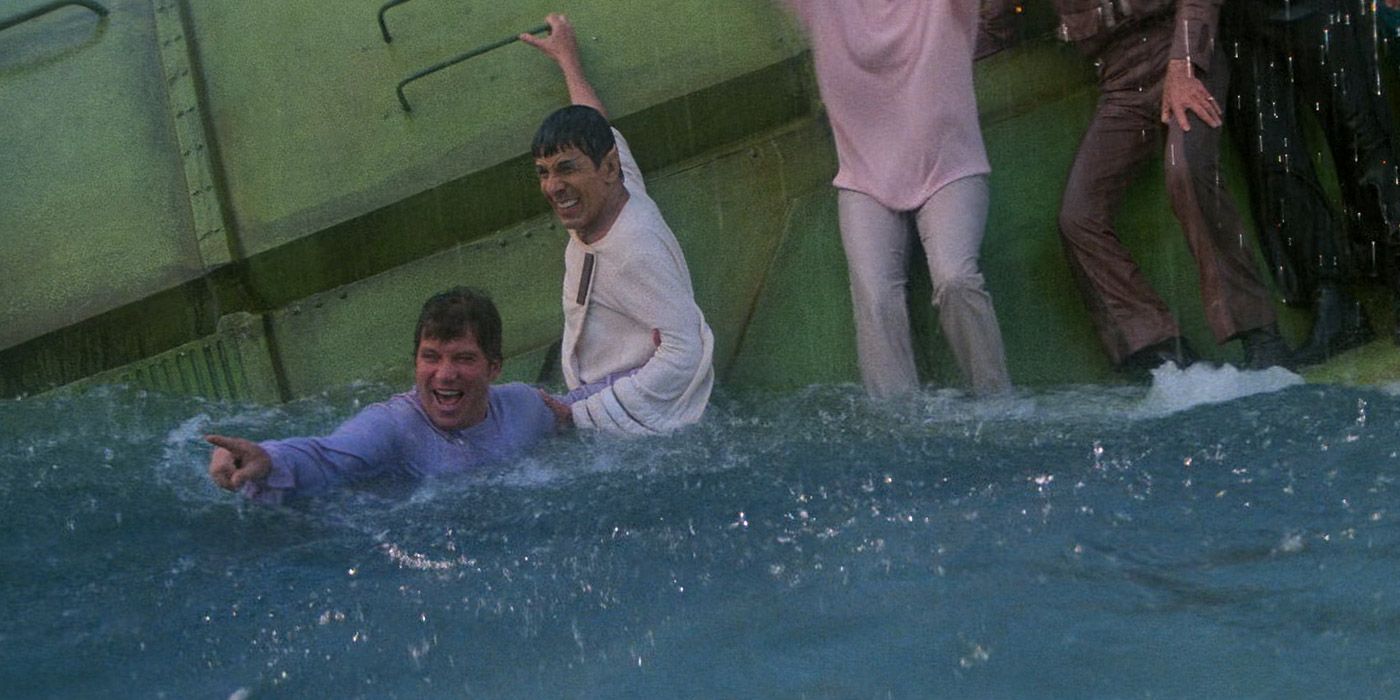Star Trek is best epitomized by the character of Captain James T. Kirk, a hero and a scoundrel in equal measure. As Captain of the fabled Enterprise, he and his crew waded boldly into the unknown reaches of space and managed to make it out in one piece, thanks largely to his set of distinct character traits.
Whether it was his passionate sense of dramatic flair, his seemingly reckless penchant for risk-taking, or his rousing speeches, Captain Kirk made a name for himself as one of the most entertaining and loved pop culture characters of all time.
His Exaggerated Melodrama
Perhaps Kirk's best-known character trait was his greatly exaggerated sense of melodrama, courtesy of iconic actor William Shatner. The character has been mocked relentlessly over the years for Shatner's overacting, which stole almost every scene the good Captain was in. Truth be told, this is just harmless fun.
In reality, Trekkers love Kirk's bombastic displays of emotion and drama just as much as they love the character himself. He's the idealized future hero who boldly leads his crew into uncharted new territories, which requires quite a bit of dramatic flair in itself.
He Was A Risk Taker
Kirk was known for taking risks, whether it was with his ship or his personal life. He knew that being a Starship Captain meant taking risks, especially when encountering strange new worlds and incredibly dangerous Star Trek alien races. Playing it safe wasn't just bad, but completely unacceptable.
In his spare time, Kirk enjoyed activities such as rock climbing without any safety gear. He nearly lost his life during one such excursion, but his life was saved by the timely intervention of Spock. For a man who feared dying alone, he seemed eager to rush the scenario.
He Was A Ladies' Man
Of course, Captain Kirk was always portrayed as a ladies' man, beginning way back in the original series. Since that time, the jokes about him romancing a number of beautiful women across a vast array of worlds has become a subject of folklore. In what might seem like a bizarre Captain Kirk fact, the real number was actually quite low.
Kirk also had just as many failures with women as he did successes. Being a Starship Captain, he was in love with his job, which meant that settling down and finding the right partner proved to be a daunting, and altogether fruitless task.
He Showed Strength At All Times
Captain Kirk never wavered when it came to displaying strength, and that was absolutely vital for a Starship Captain. He could be merciful, compassionate, and friendly, but he always did so from a position of great strength.
This not only boosted the confidence and morale of his crewmates, but it helped him make a name for himself within Starfleet's upper echelon. Had Kirk approached even one situation from a position of weakness, his enemies would surely have taken advantage.
His Speeches
Though Kirk's speeches are relegated mostly to the original TV show, he did have a few memorable soliloquies in the films, as well. Kirk was capable of delivering some of the most riveting and passionate monologues imaginable, whether it was lauding the brilliance of being a Starfleet officer or lamenting the death of a fellow crew member.
His best, and most famous speech to date comes courtesy of season 2's "Return to Tomorrow," where he pounds the desk while talking about the nature of risk. In the films, it's the emotionally gripping moment in Star Trek II, where he almost breaks down in tears after delivering Spock's eulogy on board the Enterprise.
His Rebellious Attitude
Kirk may have been a model Starfleet officer, but his record was littered with instances of insubordination and red flags. In truth, Starfleet probably saw merit in many of these infractions, as they signaled that Kirk was able to think on his own two feet and not blindly follow orders all the time.
His most infamous act of rebellion occurred when he, along with his crew, stole the Enterprise in order to rescue a newly-resurrected Spock from the Genesis planet in the oft-confusing Star Trek III: The Search for Spock, which led to his demotion. Before that, his most laudable act of rebellion was reprogramming Starfleet's training computers, which allowed him to beat the infamous "no-win scenario" imposed on all Starfleet trainees.
His Ingenuity
Kirk displayed his inherent sense of ingenuity when he reprogrammed Starfleet's training computers in order to cheat the system and beat the no-win training scenario. It was a skill he took with him throughout the rest of his career, and it was spurred on by his dislike of losing to his opponents.
Thinking outside of the box was a prerequisite for any Starfleet Captain, but Kirk practically rewrote the entire book. From traveling back in time to save the future to sacrificing the Enterprise itself for a chance at beating his Klingon adversaries, Kirk possessed a remarkably creative mind.
His Relationship With Kirk And McCoy
One of Captain Kirk's strongest character traits was his relationship with Kirk and McCoy, who were, for all intents and purposes, his older brothers. Kirk might have steered the ship, but he was nothing without the voice of logic on one shoulder and the voice of human emotion and gut instinct on the other.
It's hard to say how far Kirk would have gotten without these two individuals at his side, but they forged a bond broken only in death. Spock and McCoy helped shape Kirk's character, even during his later years when he began rethinking the trajectory of his own life.
His Fear Of Being Alone
Though he'd never admit it openly, Kirk was always afraid of being alone. This was evidenced most strongly during a camping trip with Spock and McCoy, where he revealed that he always knew he would die alone. It was a rare moment of poignancy for this character.
In the end, Kirk did indeed die alone in the bowels of the newly christened Enterprise-B, but it was not the end. Captain Picard convinced him to exit the wondrous Nexus to stop a man from killing millions. In one of Kirk's most tragic moments, he died a second time, only with Picard at his side to nullify his own revelation.
His Unyielding Hope
When the chips were down, most Starfleet officers were ready to throw in the towel, but Kirk staunchly refused. No situation was too extreme or too overwhelming to abandon all hope, and that forced him to keep on fighting to the end.
This is the quality that allowed Kirk to snatch victory from the jaws of defeat, time and time again. He and his crew faced some of the most insurmountable obstacles in galactic history, but Kirk always knew that there was a way to beat any supposed "no-win scenario" if he just believed in himself.

